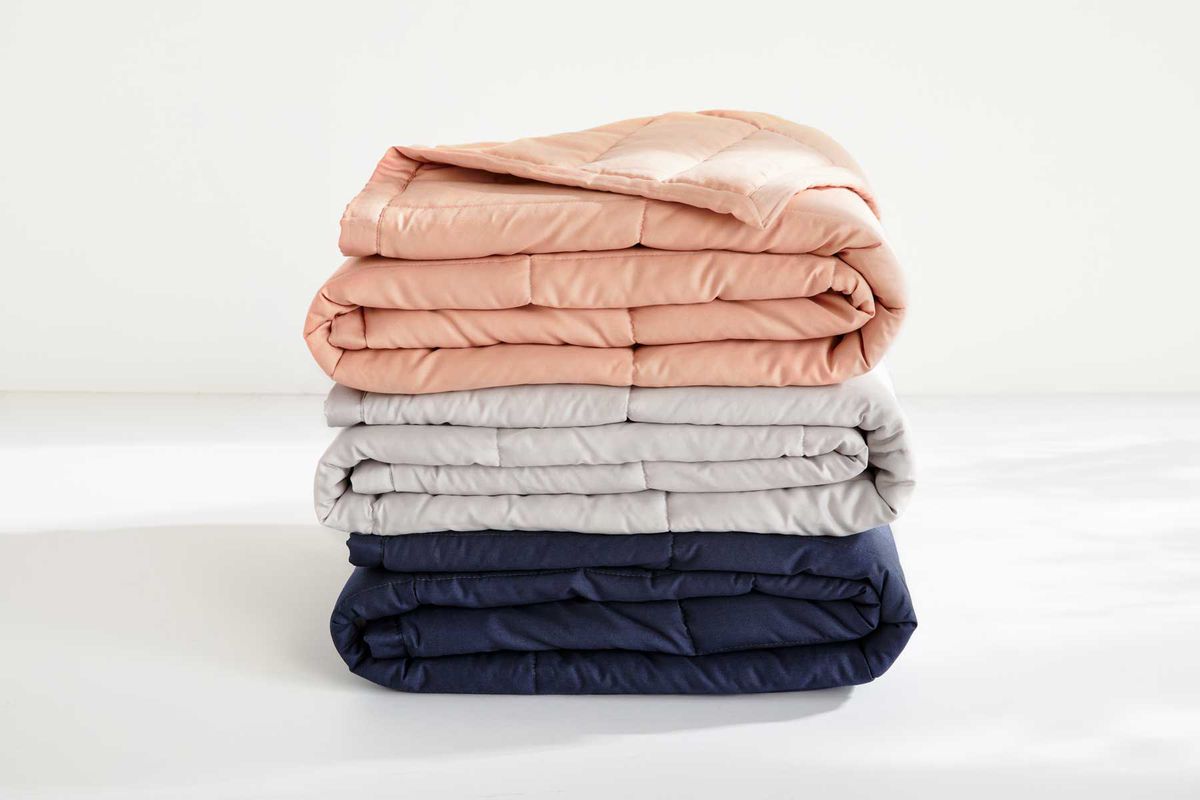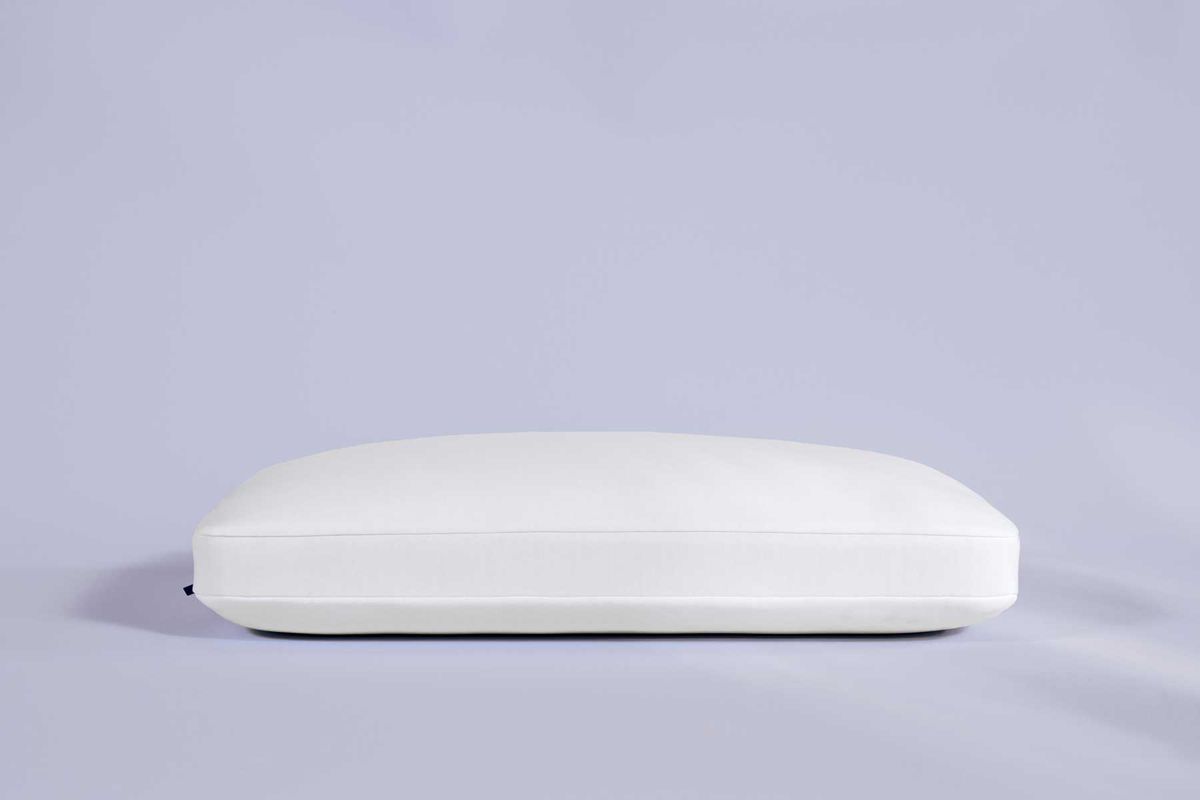
If you've been having vivid dreams or trouble sleeping in the last year, you're not alone. So many aspects of our lives have been changed by the pandemic — from how we travel to how we work — so it's no surprise that our sleeping habits have been impacted, too. Casper — the brand known for its comfortable mattresses, pillows, and bedding — asked 1,000 Americans about how their sleeping habits have been affected by the pandemic, and the results might surprise you.
According to the survey results shared in a blog post on the Casper site, some of us have become night owls since March 2020: 52.6% of people reported going to bed later, while 26.5% have been sleeping in more. Interestingly, 68.9% of respondents reported sleeping in the fetal position, so you're in the majority if you like to curl up on your side to go to sleep.
According to Casper's findings, 30.3% of people said they rely on supplements like melatonin to sleep at night, and 48.9% reported overheating during the middle of the night. Furthermore, 72.2% of people reported having incredibly vivid dreams — a trend we noticed at the start of the pandemic when we interviewed a dream analyst. Casper attributes these vivid dreams and nightmares to pandemic-related stress and anxiety, as well as reduced brain stimulation during the day. And if you and your partner have opted for separate beds during the last few months, you're not the only ones — 14.3% of couples reported sleeping in separate beds during the pandemic, and 16.7% of respondents said their partner hogged the covers.
If you want to switch up your nighttime routine and sleep better, Dr. Michael Grandner, Casper sleep advisor and director of the Sleep and Health Research Program at the University of Arizona, has a few tips. Firstly, Dr. Grandner says you need to "think about sleep as your ally" and see it as an investment in your physical and emotional well-being. Dim the lights and lower the volume of any media an hour before bed — this will tell your brain's central clock that it's time to get ready to sleep. If you have trouble relaxing, try meditating or using a distraction technique, like playing through the lyrics of your favorite song or doing a breathing exercise such as counting breaths.
If you still can't get to sleep, or if you find yourself wide awake in the middle of the night, Dr. Grandner recommends getting out of bed. "The goal is to spend the minimum amount of time awake in bed. This helps to train your brain to sleep in bed…This is probably the most powerful sleep promotion technique. By training your brain to associate being in bed with being asleep, the bed itself can start to have the power to help you get to sleep and get back to sleep if you wake up."
Ready to invest in a good night's sleep? Casper has several products that can help. If you fall into the majority of sleepers who prefer the fetal position, Casper recommends the Casper Foam Pillow for a sturdy yet comfortable place to rest your head. If you find yourself getting uncomfortably hot during the night, consider a mattress with cooling features, like the Casper Wave Mattress. The Glow Light is a good option for those who need a little help winding down at the end of the day, and an extra duvet or weighted blanket can help couples sharing a bed (the weighted blanket is a great choice for anyone looking for added relaxation, whether you sleep alone or with a partner).
Elizabeth Rhodes is an associate digital editor at Travel + Leisure. Follow her adventures on Instagram @elizabetheverywhere.
Source: Read Full Article












